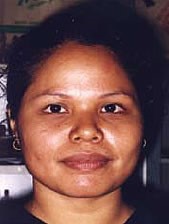Mendriq in Malaysia

Photo Source:
Copyrighted © 2026
Southeast Asia Link - SEALINK All rights reserved. Used with permission |
Send Joshua Project a map of this people group.
|
| People Name: | Mendriq |
| Country: | Malaysia |
| 10/40 Window: | Yes |
| Population: | 200 |
| World Population: | 200 |
| Primary Language: | Minriq |
| Primary Religion: | Ethnic Religions |
| Christian Adherents: | 2.00 % |
| Evangelicals: | 1.00 % |
| Scripture: | Translation Started |
| Ministry Resources: | No |
| Jesus Film: | No |
| Audio Recordings: | No |
| People Cluster: | West Malaysia Indigenous |
| Affinity Bloc: | Malay Peoples |
| Progress Level: |
|
Introduction / History
The Mendriq are one the nineteen Orang Asli people groups living in the Peninsular Malaysia. They come under the Semang (officially called Negrito) subgroup.
The Mendriq are believed to be one of the first groups of people to inhabit the Peninsula. Like the Negrito, they are mostly dark-skinned and frizzy-haired; their features resemble Papua New Guinean or east African people. They are generally shorter in stature than other Malaysians.
The Mendriq were nomadic but resettlement projects have forced many to settle down permanently in Orang Asli settlements situated in the Gua Musang district of Kelantan.
What Are Their Lives Like?
In the past, the Mendriq were foragers who practiced migratory patterns of settlement by shifting from one area to another to take advantage of the seasonal fruit harvest. Besides gathering fruits, they foraged for food and gathered forest produce for medical use.
Land resettlement has robbed them of their identity and history as well as their economic security. Poverty and loss of their traditional areas (saka) have profoundly demoralized the rural Mendriq. Their saka were not just sources for food, but group identity. Stories of their past are rooted in the landscape of their saka.
Presently, they are growing cash crops but struggle to make enough money to pay for food and other necessities because of the competitive prices of produce. Meanwhile, without access to traditional forest food and with little time and land to grow subsistence crops, their diet has deteriorated, causing malnutrition.
They resist settling down in reserves. Most individuals lack the education and skills needed for other work and often take labor jobs in a modern market economy. Therefore, whenever supplies of food are not forthcoming, they will stop working on the projects and set out into the forest to forage and collect forest produce.
What Are Their Beliefs?
The Mendriq are animists. They subject themselves to the natural forces of the jungle. They strongly fear the spirits of dead ancestors and hunted animals. Their lives are governed by a string of taboos and superstitions. Every January the Mendriq hold a mysterious ritual called Puja Pantang. This is a three-day ritual where all daily routine activities are forbidden. Outsiders are not allowed to enter the Mendriq settlements during this period. Consequently, the precise nature of this ritual remains unknown.
What Are Their Needs?
There has been significant change in the life, traditions, worldview, and community systems of the Mendriq. This has occurred in conjunction with their contact with people outside the forested domain. They also need to develop their skills in order to face the changes they are experiencing. Pray for believers who will come alongside to be an advocate for the Mendriq as they adjust to a more contemporary lifestyle. Pray for local believers who will relate and respond to all the needs of the Mendriq.